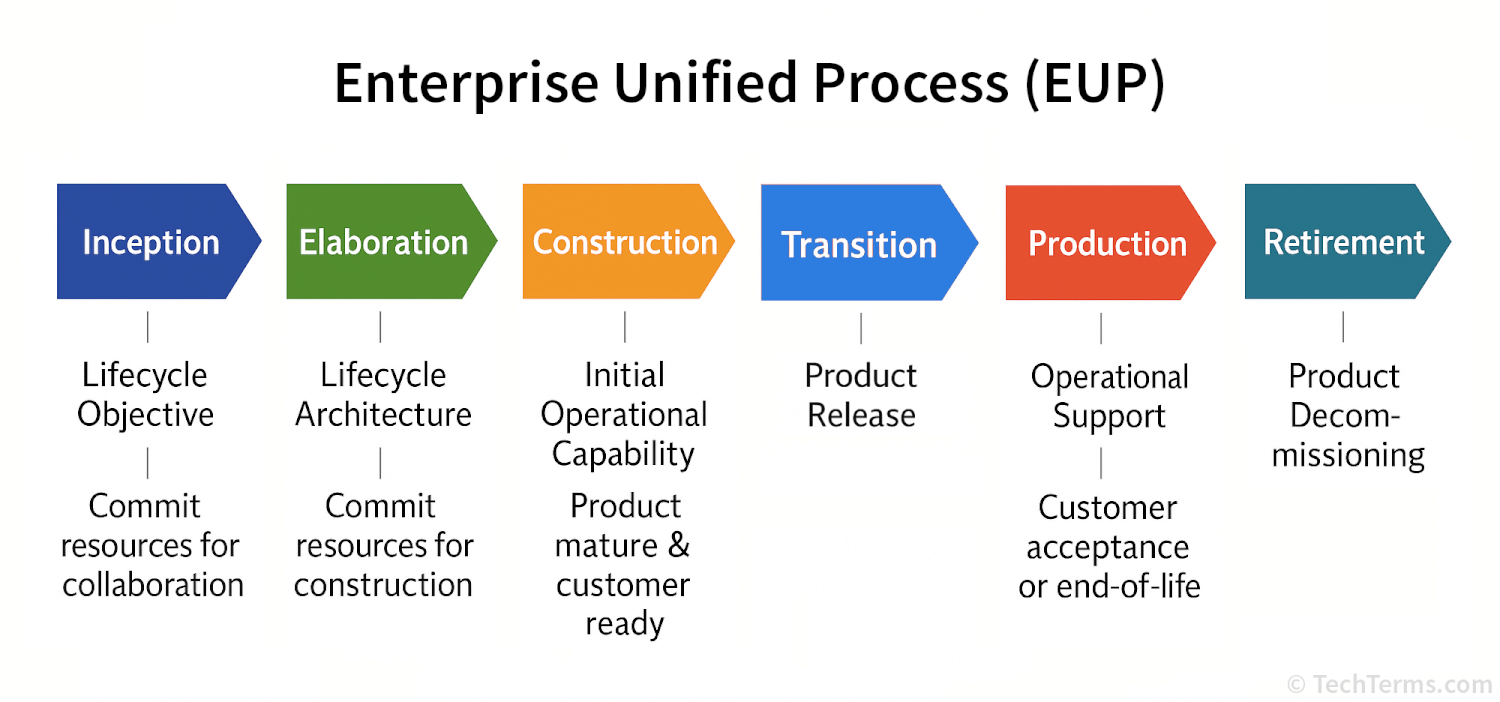EUP
Stands for "Enterprise Unified Process."
The Enterprise Unified Process (EUP) is a software development framework designed to help large organizations build and manage software applications in a structured manner. It extends the Rational Unified Process (RUP) by adding two key phases: Production and Retirement.
While the RUP consists of four phases, EUP expands the process to six:
- Inception – The team evaluates the initial idea for the project. They determine its feasibility, define business goals, and estimate the required resources.
- Elaboration – The developers define the software architecture and identify key requirements and risks. This phase ensures a solid foundation for development.
- Construction – The programmers develop and test the application.
- Transition – The company deploys the software to users. Any final refinements are made based on user feedback and application performance.
- Production – Customers actively use the software a live environment. Support and maintenance teams ensure it performs reliably and meets end user needs.
- Retirement – The company stops maintaining the software and marks it "end of life" or EOL. This may occur when the application is replaced by a new version or is no longer needed. Data migration, archiving, and formal shutdown procedures are often part of this phase.
The Enterprise Unified Process promotes a long-term, scalable approach to software development by addressing the whole software lifecycle. Notably, it includes post-deployment support and eventual retirement — areas often overlooked in traditional development models.

 Test Your Knowledge
Test Your Knowledge